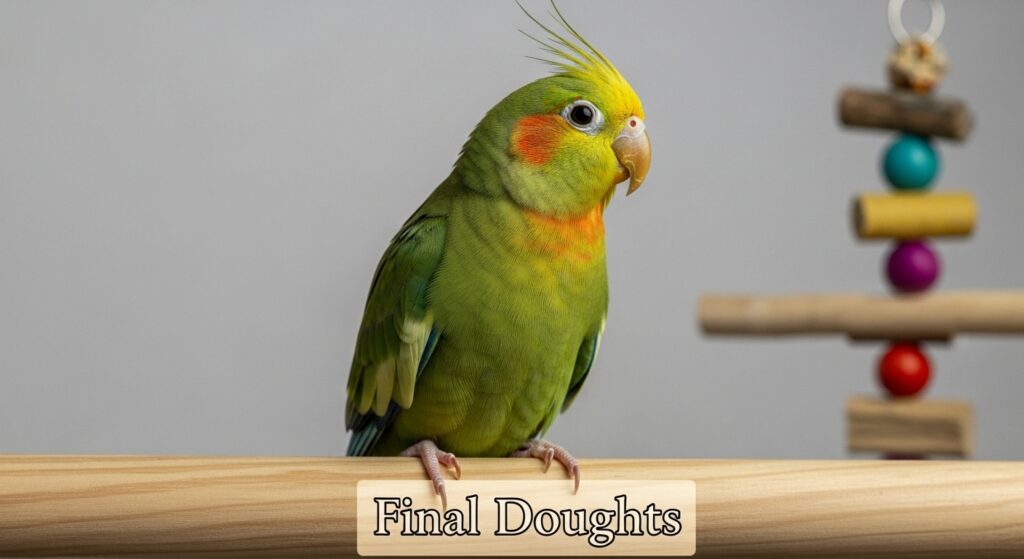Pet birds bring joy, color, and personality into our homes. But unlike cats or dogs, birds have unique needs that require proper care, attention, and environment. If you want to ensure your feathered friend lives a long, healthy, and joyful life, follow these essential tips:

🏡 1. Provide a Safe and Spacious Cage
Your bird’s cage is its home, so it should be:
- Spacious enough for flapping wings and light flying (especially for parrots or cockatiels).
- Clean and secure, with bars the right size for your bird’s species to prevent injury or escape.
- Equipped with perches, toys, swings, and a variety of textures to prevent boredom and promote movement.
Place the cage in a safe, draft-free, and well-lit area—but away from direct sunlight, kitchens, and fumes.
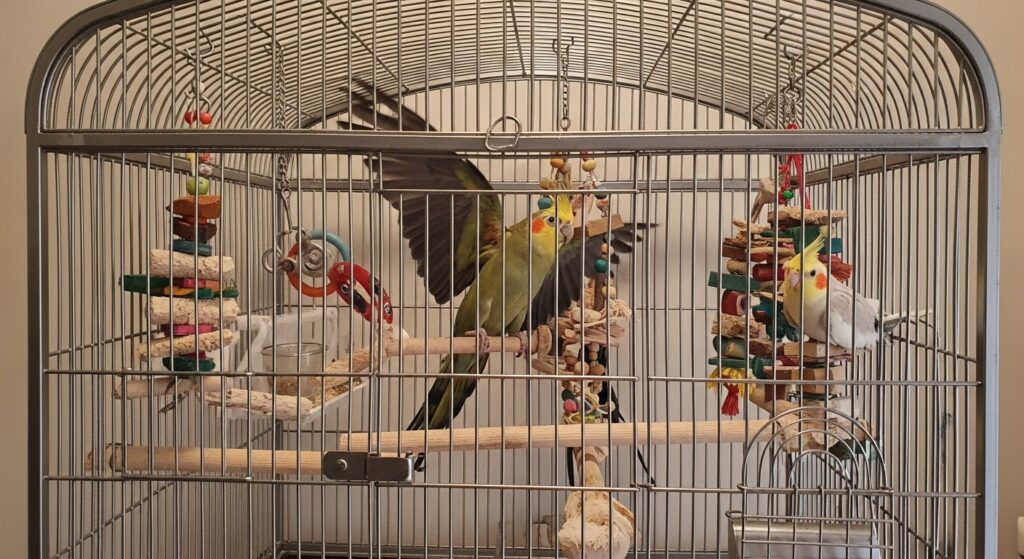
🍎 2. Feed a Balanced and Varied Diet
A healthy bird diet is more than just seeds! A nutritious diet should include:
- Pellets formulated for your bird’s species
- Fresh fruits and vegetables (e.g., apples, carrots, spinach, broccoli)
- Occasional treats, like millet or boiled eggs
Avoid giving chocolate, avocado, caffeine, salty foods, and sugary treats—they’re toxic to birds.
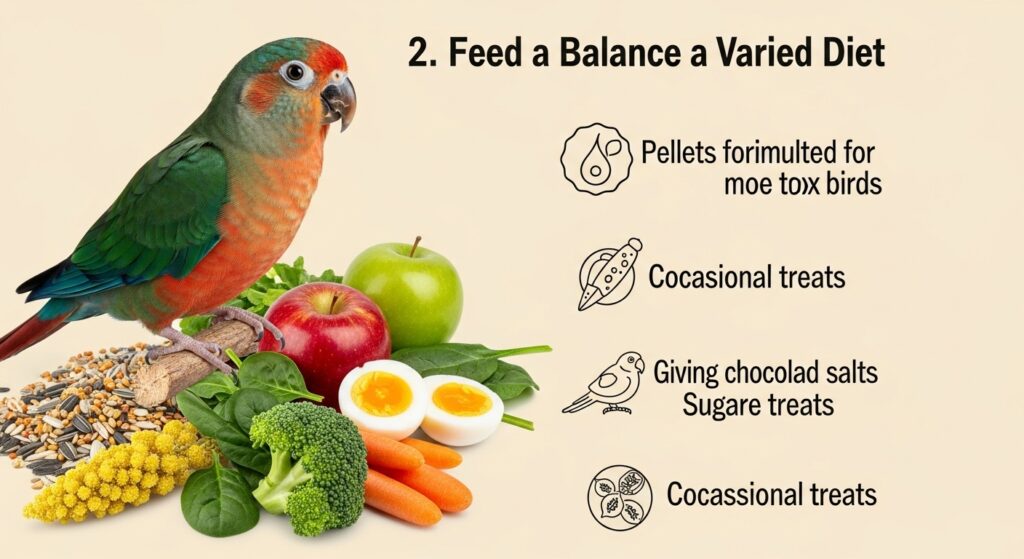
💦 3. Provide Fresh Water Daily
Birds need clean, fresh water every day—for both drinking and bathing. Wash their water bowl or bottle daily to prevent bacteria buildup.
Some birds also enjoy splashing in shallow bowls or being misted with clean water. Bathing helps keep feathers clean and skin healthy.
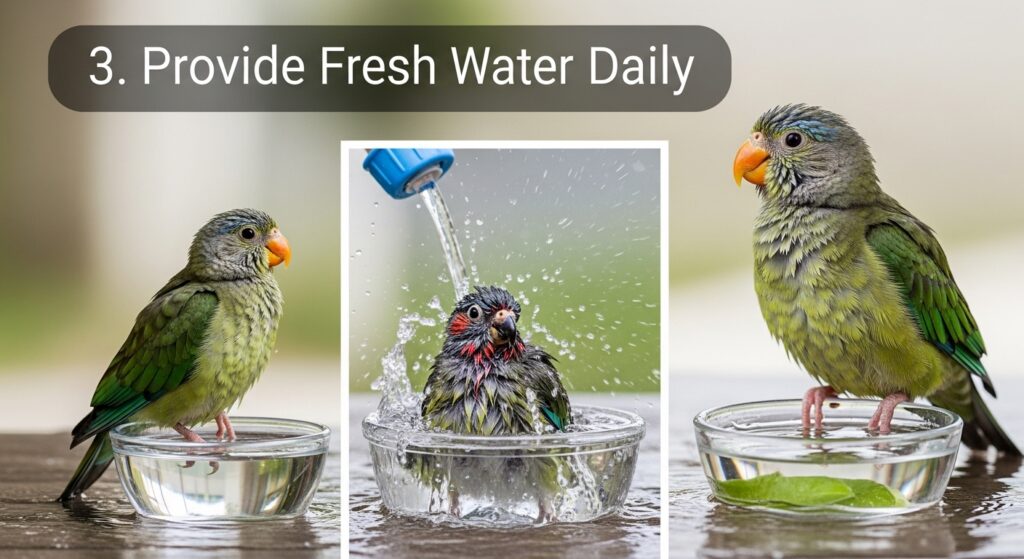
🧸 4. Prevent Boredom with Toys and Interaction
Birds are intelligent and social animals. Without mental stimulation, they can develop behavioral issues like feather plucking or screaming.
- Rotate toys regularly to keep your bird engaged.
- Provide puzzle feeders, bells, mirrors, or chewable items.
- Spend time talking, singing, or training your bird daily—even a few minutes helps build a strong bond.

🦜 5. Give Them Time Outside the Cage
If safe and supervised, allow your bird some daily time outside of the cage to stretch wings and explore. Use bird-proofed rooms or a bird-safe harness outdoors.
Make sure windows, fans, and electrical cords are off-limits, and keep other pets away during free time.
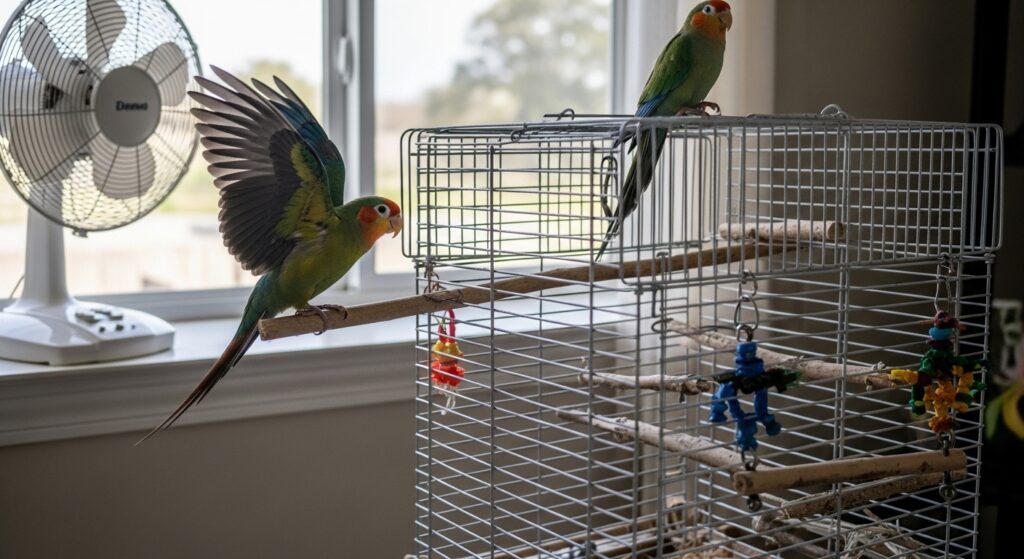
🧑⚕️ 6. Schedule Regular Vet Visits
Birds are masters at hiding illness. That’s why yearly avian vet checkups are essential. Look out for warning signs like:
- Fluffed-up feathers for long periods
- Loss of appetite
- Lethargy
- Discolored droppings
- Changes in behavior or voice
Early detection can make all the difference.
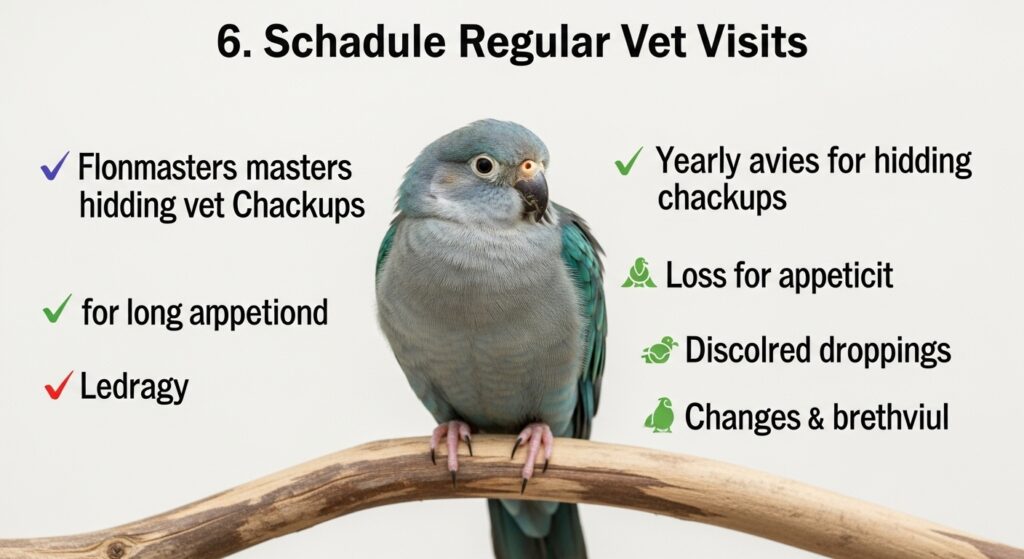
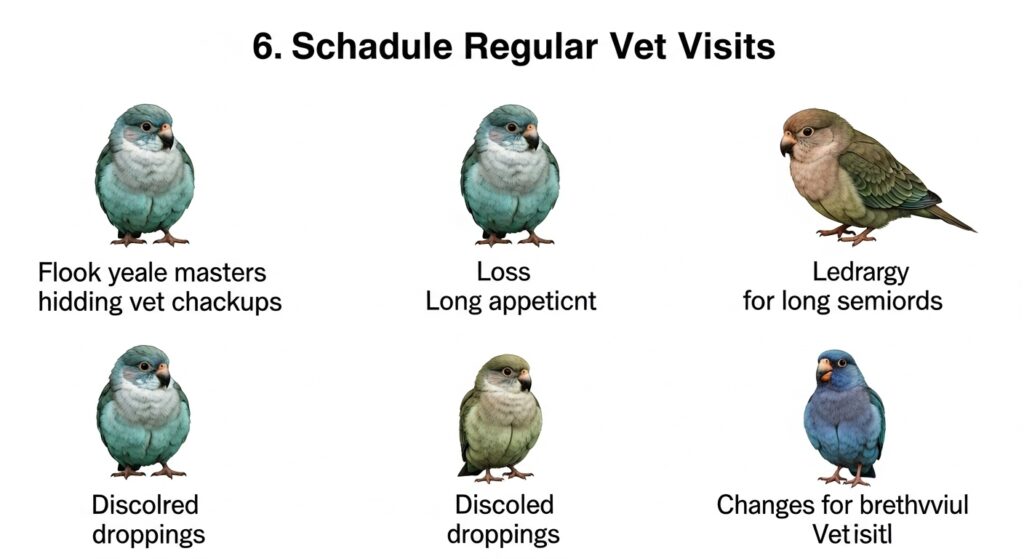
❤️ 7. Show Love and Patience
Every bird has its own personality. Some are affectionate and cuddly, while others are shy and independent. Be patient, gentle, and consistent in how you handle and interact with them.
Avoid sudden movements or loud noises that could stress your bird. Over time, your feathered companion will learn to trust you and feel secure in your presence.

Final Thoughts
Keeping your pet bird healthy and happy doesn’t require expensive gear—it just needs dedication, knowledge, and love. With the right care, your bird will reward you with a lifetime of cheerful chirps, playful antics, and loyal companionship.
